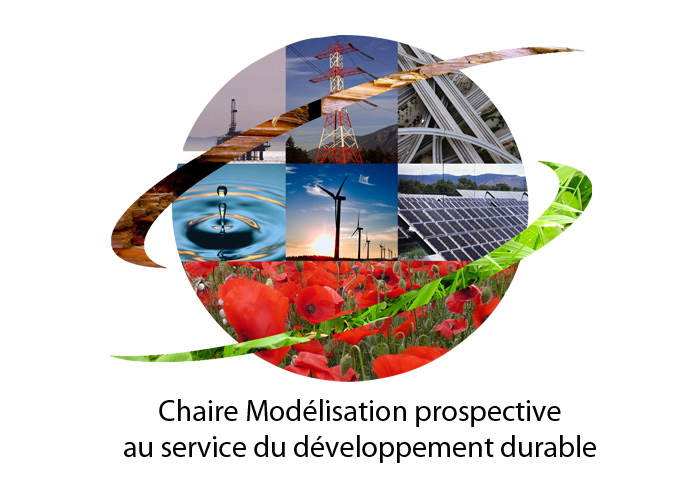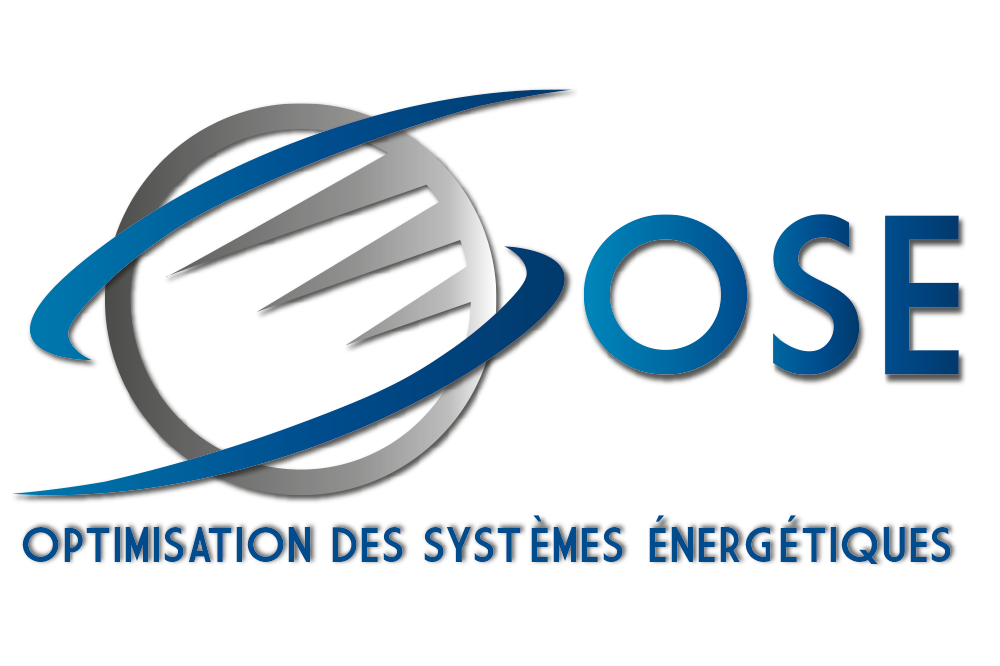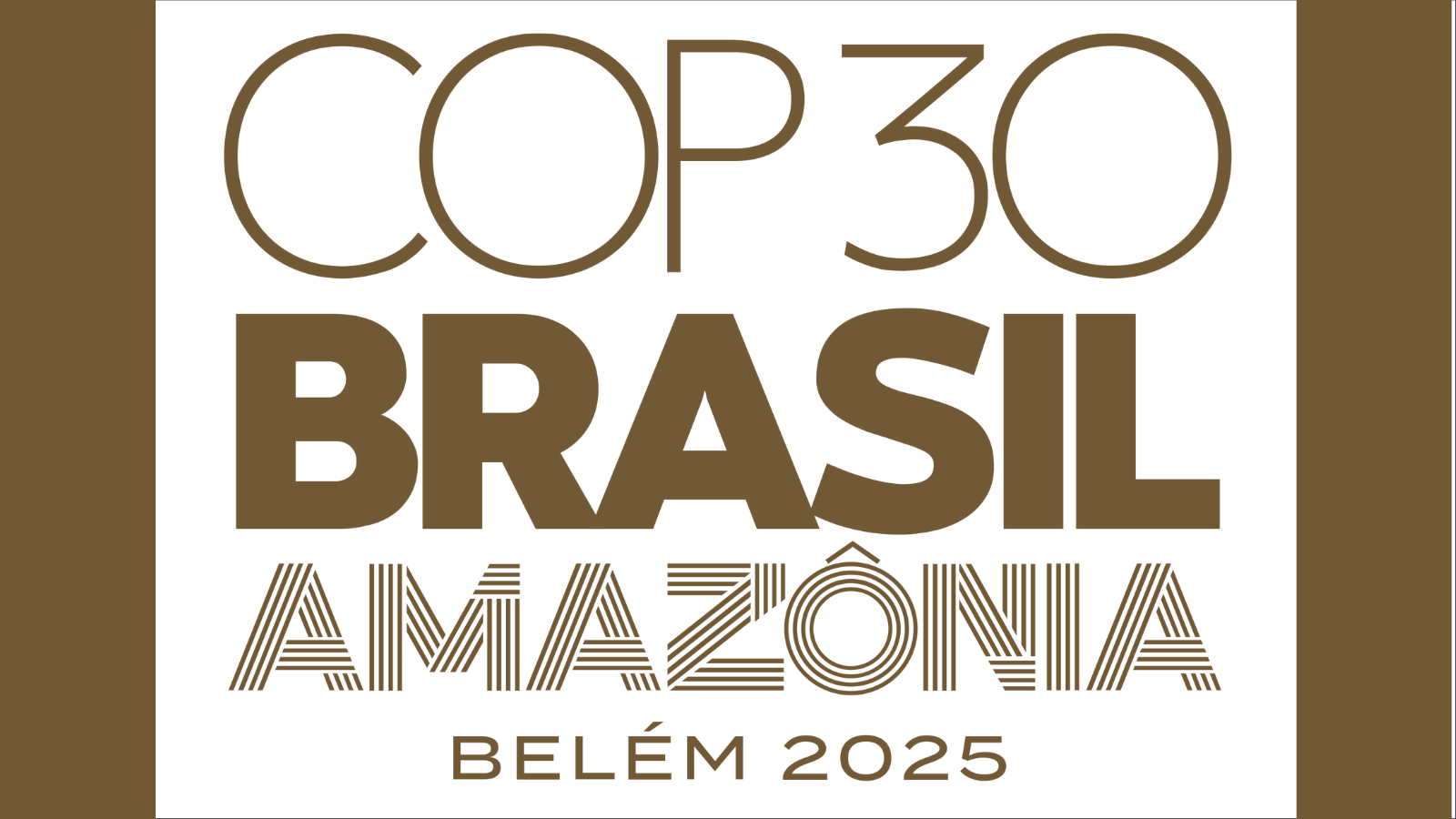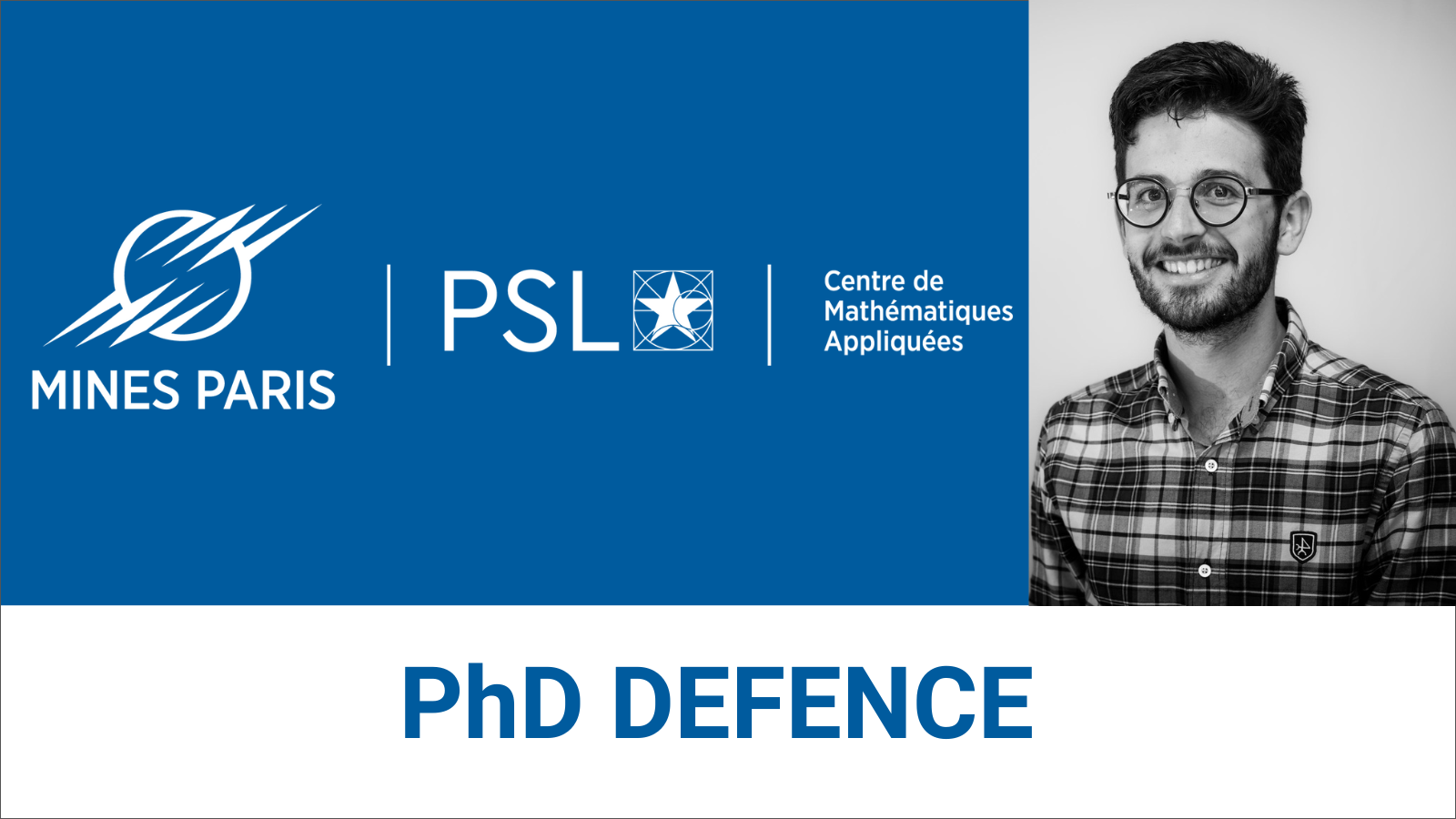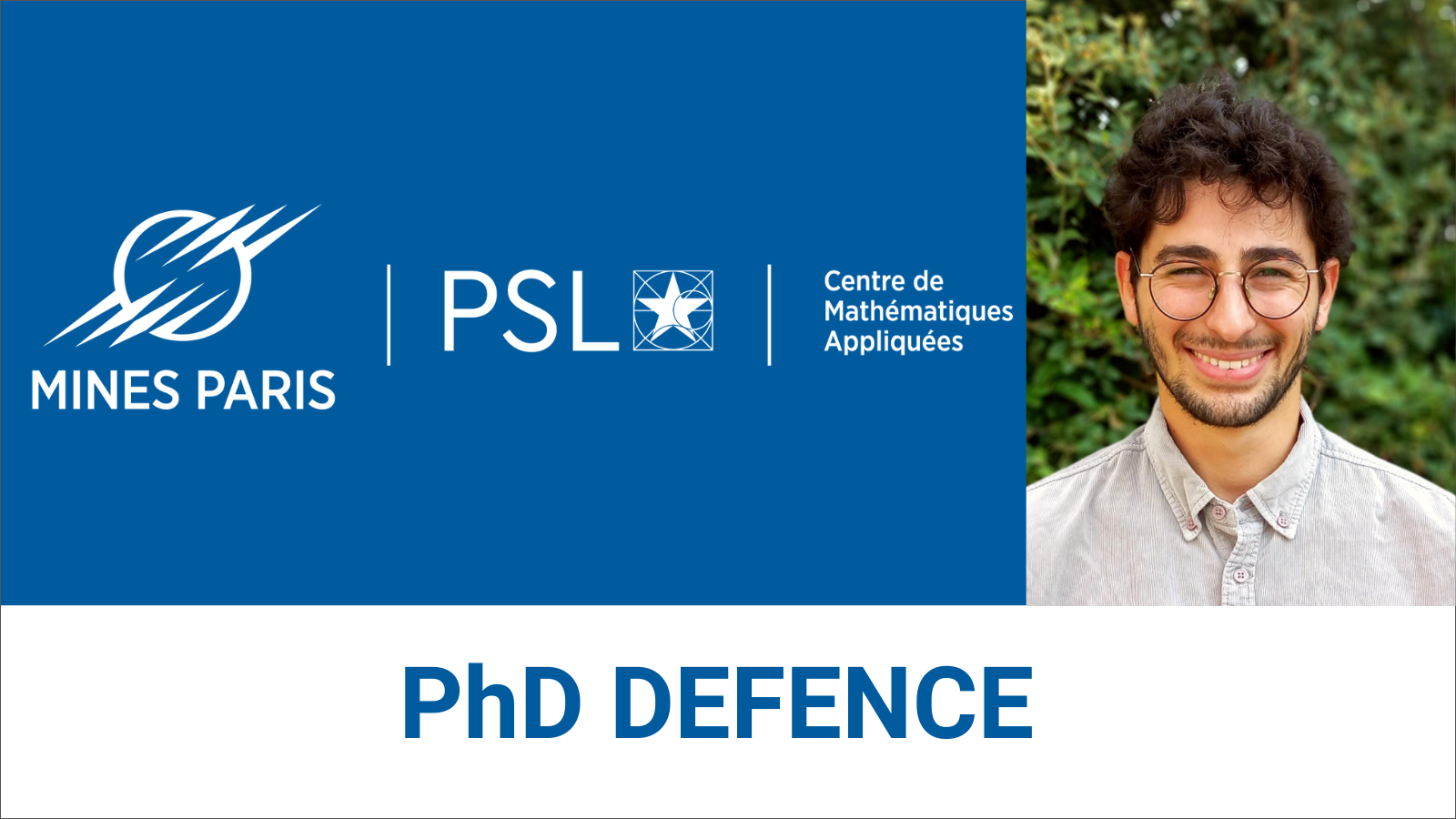The CMA Mines Paris – PSL
The Centre for Applied Mathematics (CMA) is one of the 18 research centres of Mines Paris – PSL (École Nationale Supérieure des Mines de Paris). Founded in 1976, at the time of the creation of the Sophia Antipolis technology park where it is located, the CMA is part of the Mathématiques et Systèmes deparment of Mines Paris – PSL. Since 2000, the CMA is directed by Nadia MAÏZI. Since 2021, Gilles GUERASIMOFF is deputy director of the CMA.
The Center for Applied Mathematics (CMA) is developing an original scientific approach by applying its fundamental scientific skills in modelling and the mathematics of control and decision-making to tackle the issue of decarbonisation of complex systems on a multi-scale basis, covering both time and space. This original stance, which combines fundamental mathematics and climate issues, is the culmination of a visionnary scientific strategy that was initiated some twenty years ago. Energy issues associated with climate change and globalisation provided the opportunity for a thematic renewal in the mathematics of decision making, a field in which the laboratory has a great deal of expertise, notably with the recent development of data mining. Research projects at the CMA are organised along three axes: prospective modelling, mathematical optimisation, data and machine learning.
Research axes
Prospective modelling
Meeting the challenges of carbon neutrality and sustainable development requires government decision-makers and businesses a capacity for coherent long-term anticipation and an awareness of the complexity and interdependencies between technological innovation, economic impact, lifestyles and environmental objectives. The central proposal of the CMA’s prospective modelling research axis is therefore to develop optimisation models that allow energy choices to be formalised and studied in their systemic and intertemporal dimension. This research activity involves modelling energy systems on regional, national, continental and global scales, as well as creating and running the Chair Modelling for Sustainable Development.
Read more >
Mathematical optimisation
The design and operation of complex systems with a view to decarbonising them raises new theoretical and practical questions in mathematical optimisation: how can we deal with the non-convex, non-differentiable dynamics of these physical systems, in conjunction with uncertainties in predictive data or discrete decisions and logical operating conditions, on multiple and large temporal and spatial scales? Where engineering problems of high complexity and large dimensions have historically been dealt with using simplified optimisation models and dedicated heuristic algorithms, the CMA employs a methodological approach, studying general classes of mathematical programs, designing versatile algorithms with guaranteed convergence, and applying them to detailed models, particularly on decision-making problems relating to energy production and consumption.Read more >
Data and machine learning
As a result of the digital transition that the energy sector has undergone in recent decades, data-based models are an ideal complement to traditional physics-based approaches. Indeed, the latter require a high level of detail, which can lead to an excessive computational load for certain analyses, such as operational forecasts requiring the generation of sets of forecasts via multiple simulations. As a result, less computationally intensive techniques, such as data-driven modelling, need to be considered. The low-carbon systems studied at the CMA are many and varied.
Read more >
Key facts
Launch in 2022 of The Transition Institute 1.5, initiated and directed by Nadia MAÏZI, Director of the CMA
The Transition Institute 1.5 (TTI.5), 1.5 as an echo of the maximum temperature rise target advocated by the IPCC, is an initiative launched by Mines Paris – PSL with the support of its Foundation. Specifically set up to design the low-carbon transition, the Institute’s ambition is to provide informed scientific responses to the huge challenge of carbon neutrality.. Read more >
Launch in 2021 of the MSc in Climate Change & Sustainable Finance, a double-degree programme run by EDHEC Business School and Mines Paris – PSL via the CMA
This programme combines financial expertise with a sound understanding of the scientific and engineering challenges associated with the transition to a low-carbon economy. The energy transition will require the development of a wide range of new financial instruments and innovations, with profound implications for markets, companies, intermediaries and investors. This programme, taught entirely in English, will prepare the next generation of financial professionals for this massive shift, giving them the right skill set to ensure that the financial industry can provide long-term support to meet environmental needs. Read more >
Renewal in 2019 of the Modelling for Sustainable Development Chair (Chaire MPDD), created in 2008 and renewed in 2013
The Modelling for Sustainable Development Chair is run by the CMA Mines Paris – PSL and the International Center for Research on the Environment and Sustainable Development (CIRED), laboratory of the École des Ponts ParisTech. In adopting a prospective approach, the Chair establishes its vocation to facilitate decision-making by elaborating long-term scenarios focusing on energy and climate policy issues, industrial development, technological and societal choices. The Chair also boosts the international profile of its co-founding teams and their partners by organizing international symposia and Summer Schools, by increasing its presence in international expert bodies such as the IPCC, and through the publication of its scientific work.Read more >
Since 2008, the CMA has been France’s reference laboratory for the IEA’s ETSAP programme.
The Energy Technology Systems Analysis Program (ETSAP) is one of the oldest collaborative technology programmes of the International Energy Agency (IEA). ETSAP currently has 21 countries as contracting parties and one private sector sponsor. Since 2008, the CMA, designated by the DGEMP and ADEME, has been the reference laboratory for France under this programme. Read more >
Since 1999, the CMA runs the Specialised Masters in Energy Systems Optimisation (MS OSE).
Le Mastère Spécialisé© OSE is a course organised by the CMA Mines Paris – PSL in partnership with CREDEN of the Faculty of Economic Sciences of Montpellier I and EDHEC Business School which is run in close collaboration with industry. During a year of immersion in the world of energy, students acquire the technical, economic, environmental and legal knowledge they need to design and implement tomorrow’s energy projects, giving them access to all the professions in the energy sector. Through the prism of mathematical optimisation and prospective modelling, this unique multidisciplinary course combines technological and climatic issues with economic and financial aspects. Read more >








